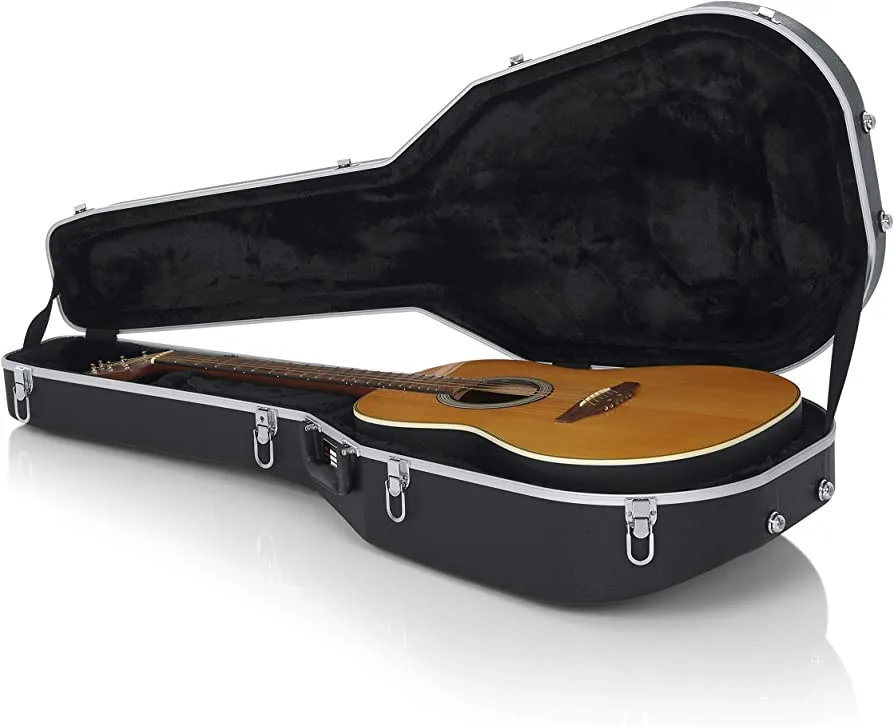Hi there, fellow guitar enthusiasts! Are you tired of your guitar getting damaged or losing its tune after leaving it lying around? Well, I certainly have been. As a proud owner of multiple guitars, I’ve learned the hard way that proper storage is key to maintaining their quality and longevity. And trust me, you don’t want to make the mistake of neglecting your beloved instrument.
In this article, we’ll explore some tried and tested tips and tricks from professional musicians on how to properly store your guitar. We’ll cover everything from ideal storage conditions to must-have equipment for protecting your precious instrument. Whether you’re a beginner or a seasoned guitarist, these insights will help ensure that your guitar stays in top shape for years to come. So let’s dive in and learn how to properly store our guitars like the pros do!
So, how to store guitar?
Storing your guitar properly is crucial in maintaining its quality and longevity. Whether you’re a beginner or a seasoned musician, knowing how to store your guitar can save you from potential damage and costly repairs. Luckily, we’ve gathered some tips and tricks from the pros on how to store your guitar like a pro.
Firstly, it’s important to keep your guitar away from extreme temperatures and humidity levels. This means avoiding direct sunlight, heaters, air conditioners, or any other source of heat or moisture. These elements can cause warping, cracking, and other damages to the wood of your instrument.
Next, invest in a good quality case for your guitar. A hard-shell case with padding will provide the best protection against bumps and knocks during transportation or storage. Make sure to also clean out any dust or debris that may accumulate inside the case regularly.
When storing your guitar for an extended period of time (more than a few weeks), loosen the strings slightly to relieve tension on the neck. This will prevent any potential damage caused by constant pressure on the neck.
It’s also recommended to store your guitar in an upright position rather than laying it flat on its back. This helps maintain proper tension on the neck and prevents any accidental falls that could result in serious damage.
If possible, avoid storing multiple guitars stacked together as this can lead to scratches and dings between instruments. If space is limited, consider investing in wall mounts or stands specifically designed for guitars.
Lastly, make sure to check up on your stored guitar every now and then – especially if it’s been sitting unused for a while. Inspect for any signs of damage such as cracks or changes in shape that may require immediate attention.
By following these tips from professional musicians who have mastered their craft through years of experience with their beloved instruments – you’ll be able to confidently store your own without worry! Properly storing your guitar not only ensures its safety but also maintains its sound quality for years to come. So, take care of your guitar and it will continue to bring joy to you and others through its beautiful music.
Understanding the Ideal Storage Conditions for Your Guitar
Storing your guitar correctly ensures it remains in excellent condition for years. The most crucial aspect to consider is humidity. Guitars, especially those made of wood, are highly sensitive to moisture levels. Ideally, you want the environment around 45-55% relative humidity. Too much moisture can cause the wood to swell and warp, while too little can lead to cracks and splits. Investing in a hygrometer helps monitor this balance effectively. If you’re playing in an area with extreme weather conditions, using a humidifier or dehumidifier might be necessary.
Another important factor is temperature control. Extreme heat or cold can adversely affect your instrument’s integrity over time. Aim for a stable temperature between 65-75°F (18-24°C). Fluctuations outside these parameters might weaken glues that hold the guitar together and detune it frequently.
Additional Tips:
- Avoid leaving your guitar near heaters or air conditioning vents.
- Keep it out of direct sunlight.
- If stored long-term, loosen the strings slightly but not completely.
Choosing where you place your guitar also matters—preferably somewhere safe from accidental knocks and falls.
By following these guidelines, you’ll keep your beloved musical companion sounding as good as new!
Exploring the Importance of Proper Humidity Levels in Guitar Storage
Keeping your guitar in tip-top shape isn’t just about regular playing and practice. One often overlooked aspect is maintaining the right humidity levels where you store it. Guitars, being made primarily of wood, are quite sensitive to changes in moisture. When the air is too dry, the wood can shrink or crack, causing permanent damage to your beloved instrument. Conversely, excessive humidity can lead to swelling and warping of the wood, which might result in a loss of tone quality or even structural issues.
To ensure your guitar remains in good condition for years to come, monitoring and controlling its environment is key. Many players use humidifiers specifically designed for guitars; these devices help keep the air within an optimal range—usually between 45% and 55% relative humidity. Here are some practical steps you can take:
- Invest in a Hygrometer: This tool measures humidity levels accurately.
- Avoid Extremes: Keep your guitar away from heaters or air conditioners.
- Caring Cases: Use cases that provide insulation against environmental changes.
By paying attention to these details, you’ll not only preserve the visual appeal but also maintain the rich sound that makes playing so enjoyable.
So next time you’re tempted to leave your guitar by a sunny window or near an AC vent—think twice! Your future self (and probably others who hear you play) will thank you.
Read also: How much is a 30 minute guitar lesson?

Deciding on a Case: Hard-shell vs. Gig Bag for Storing Your Guitar
When it comes to storing your guitar, the choice between a hard-shell case and a gig bag can feel like deciding between security and convenience. A hard-shell case is akin to a fortress for your beloved instrument. Made from sturdy materials like wood or molded plastic, these cases provide excellent protection against bumps, drops, and temperature fluctuations. Ideal for travel or heavy-duty storage, they ensure that your guitar remains unscathed even in rough conditions. The snug fit inside minimizes movement so every part of the guitar stays in place. However, their durability often means added weight and bulkiness—something to think about if you’re always on the go.
On the other hand, gig bags offer an appealing blend of lightness and portability. These soft cases are made from padded fabric materials that make them easy to carry around town or on public transportation. Gig bags usually come with shoulder straps or backpack-style harnesses which free up your hands—great for juggling multiple items at once! They might not have the same level of rugged protection as hardshells but many modern gig bags feature ample padding along with compartments for accessories like tuners or sheet music. For musicians who frequently perform locally or just need simple home storage solutions without sacrificing too much space, a quality gig bag can be incredibly practical.
– Hard-shell Case:
– Superior Protection
– Heavy Duty
– Less Portable
– Gig Bag:
– Lightweight
– Easy Transport
– Moderate Protection
The Role of Wall Mounts and Stands in Correctly Storing Guitars
Have you ever walked into a room and seen a beautiful guitar hanging on the wall or majestically perched on a stand? It’s not just for show; wall mounts and stands play an essential role in preserving the life of your cherished instrument. Keeping guitars stored properly can significantly influence their longevity and performance. When you use a wall mount, it keeps your guitar off the ground, avoiding accidental bumps and spills. It also helps in maintaining consistent humidity levels by allowing air to circulate around the instrument freely.
Stands provide similar benefits but add flexibility since they let you move your guitar easily from one spot to another. There are different kinds to suit various needs:
- A-frame stands: Perfect for quick access.
- Tubular stands: Great stability.
- Multi-guitar racks: Hold multiple instruments securely.
Whether mounted or placed on a stand, proper storage protects against warping necks caused by laying flat or leaning against walls improperly. Plus, when displayed appropriately, these musical treasures become part of your home décor—harmony between functionality and beauty! So next time you’re deciding where to place that treasured axe, remember: good storage goes beyond aesthetics—it’s about ensuring optimal condition every time you strum those strings.
You may also like: how to learn jazz piano
Conclusion: The Long-Term Benefits of Properly Storing Your Guitar
Taking the time to properly store your guitar can make a world of difference in its longevity and performance. Imagine this: you’ve invested in a cherished instrument, and you want it to stay as beautiful and functional as the day you first played it. Proper storage isn’t just about putting it away; it’s about creating an environment that keeps your guitar safe from harm. Humidity control is key—too much moisture can cause wood to swell, while too little can lead to cracks. Think of using a humidifier or dehumidifier based on where you live. Finding the right balance ensures that your guitar remains in perfect playing condition for years.
Another crucial element is choosing the right case. A hard-shell case provides better protection against accidental drops compared to a soft gig bag, which might only shield from dust or minor scratches but won’t safeguard from impacts. Keeping your guitar out of direct sunlight prevents fading and warping caused by heat exposure. Simple habits like wiping down strings after use help prevent buildup of oils and dirt, maintaining sound quality over time.
- Humidity Control: Use humidifiers/dehumidifiers.
- Proper Case: Invest in hard-shell cases for maximum protection.
- Avoid Sunlight: Store away from windows.
By implementing these practices now, you save yourself potential headaches later on—ensuring that every strum resonates with clarity and each note sings with perfection.

